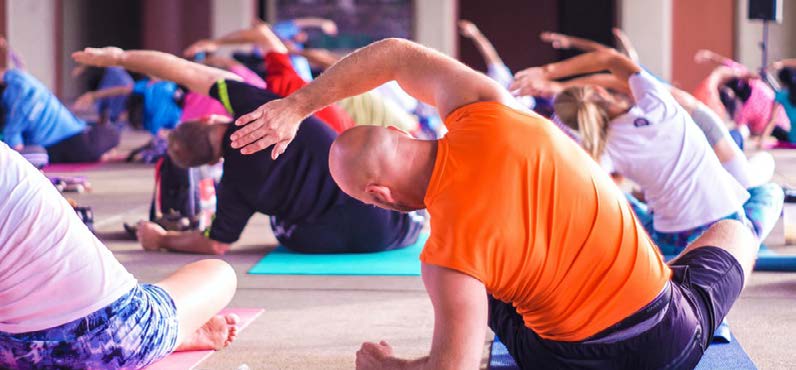Disclaimer: The views and opinions expressed by this author are their own and do not represent the official position of the Barbados Today Inc.
by Dr. Colin Alert
Medical research indicates that physical inactivity has a broad negative impact on population health: in addition to noncommunicable diseases like diabetes, hypertension, heart attacks and strokes, conditions such as depression, dementia, and a number of cancers, including breast, colon, and stomach cancers are all related to physical inactivity.
Our most recent National epidemiological study, the Health of the Nation study (HotN, 2015) found that 50% of the Barbadian adult population over the age of 25 years stated that 50% got no/little physical activity.
Years previously, the Barbados Risk Factor Surveys (BRFS) of 1993, 1997 and 2003, showed the same thing. Adult Barbadians for the most part chose to be inactive.
So we have a very inactive a.k.a. ‘lazy’ adult population, suffering from many health consequences that regular physical activity could ameliorate or sometimes prevent all together. A few years ago, we did have a National Physical Activity Commission, this National Commission has itself become inactive.
Unfortunately, the COVID pandemic, and the accompanying disruption to everyday life, made a bad condition even worse.
• COVID-19 is associated with more severe disease in those with non-communicable diseases like obesity, diabetes and/or hypertension, so these persons were more fearful of going out.
Unfortunately, apart for not getting the needed physical activity, they also avoided doctor visits, stayed at home with apparent ‘mild symptoms’, or failed to fill their prescriptions for chronic disease medications.
• Persons were wary of getting close to other persons in crowded situations for fear of contracting COVID-19, so stayed at home as much as possible.
• People who were asked to work from home were suddenly more inactive than previously. At home people were sitting (or lying) down more than usual;
• Curfews discouraged some individuals from some activities like walking around the neighborhood.
• Many people could not do the exercise they usually did, and those who did little or no exercise suddenly got a new excuse for not exercising.
• Before covid there was great concern that childhood obesity was being fueled in part by children having a lot of screen time: spending many hours daily on various screens like the television, the video, the smart phone, and the i-Pad.
When schools were closed, children were forced to spend even more time in front of the screens, further reducing the opportunity for physical activity.
All school sports and games were suspended; a few kids who got a little physical activity at school now got none. Regular physical activity benefits both the body and mind.
It can reduce high blood pressure, help manage weight and reduce the risk of heart disease, stroke, type 2 diabetes, and various cancers – all conditions that increase susceptibility to COVID-19.
It also improves bone and muscle strength and increases balance, flexibility and fitness.
For older people, activities that improve balance help to prevent falls and serious injuries. It’s also good for mental health – reducing the risk of depression, cognitive decline and delay the onset of dementia – and improves overall feelings.
So what should you do? • Schedule 45 minutes (or more) in your daily routine for exercise. Make sure you turn off the phone or at least decide to ignore all calls. 45 minutes gives you time to warm up before, and warm down after, the exercise session.
• Remember the target of a minimum of 30 minutes of continuous moderately vigorous exercise.
• You can join fitness workout programs on your television, or over the internet.
• Going up and down stairs is an excellent aerobic activity • Add some ‘pep’ to your house hold chores: Sweep, mop and vacuum the house, wash the ash off the car (without wasting potable water) to music. Get outside: mow the lawn, sweep up leaves, and trim the trees.
• Try dancing: this may be a good time to learn line dancing, or the “Jerusulema” ,
• Even if your feet don’t work well you can sit on a chair, turn up the ‘radiogram’, and ‘shake that booty’, using household objects (like an bottle of water in each hand) to serve as simple weights.
• During the day, do not stay in one position for long periods at a time: get up and walk around (but not to the fridge). Regular stretching is recommended.
• Play with the kids: everyone can benefit from the exercise.
• Drink water, not sweetened beverages.
• If your smart phone has a pedometer, you can record daily/weekly/monthly targets, and remember to share these with your doctor at every visit
• Work with your doctor in planning an exercise program for you: everyone needs one, and everyone can benefit.
• Be wise: exercise.
Dr. Colin V. Alert, MB BS, DM. is a family physician and associate UWI family medicine lecturer




